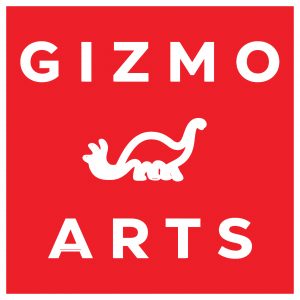Border Bodies: A Visual Pop-UP
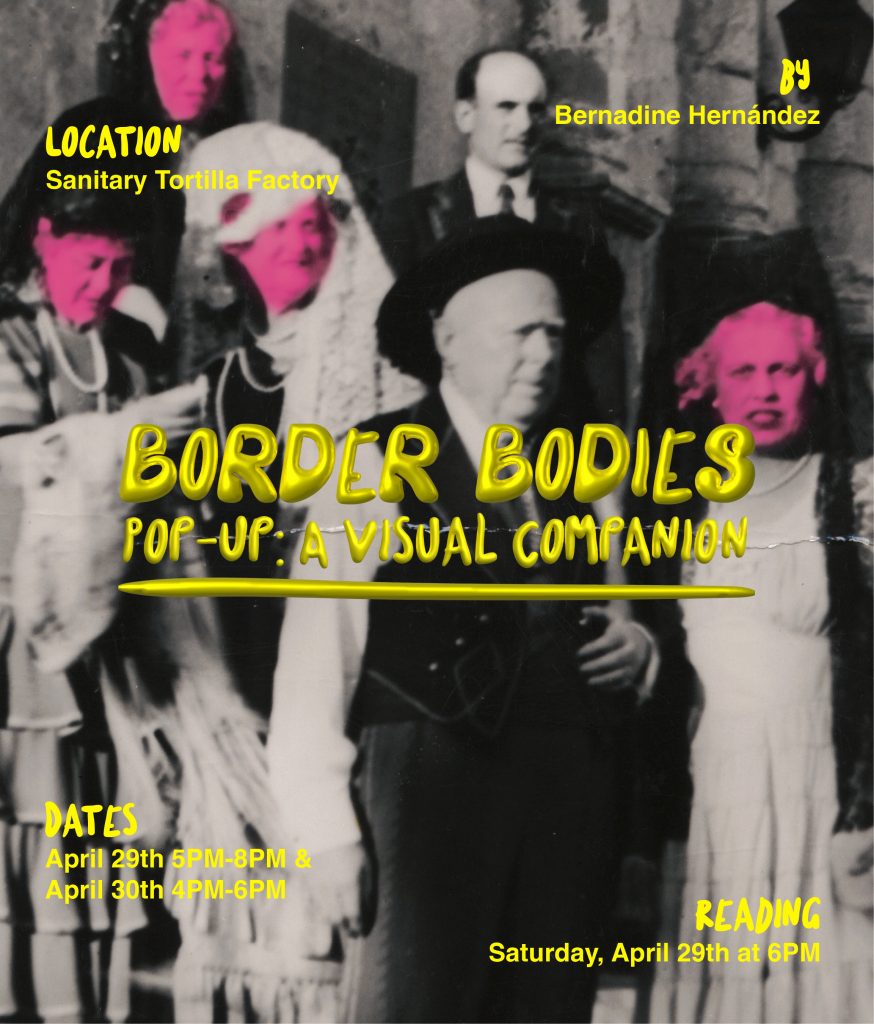
Border Bodies: A Visual Pop-UP
Dr. Bernadine Hernández
April 29-30, 2023
Reading: April 29, 6pm
Reception: April 29, 5-8pm
Sanitary Tortilla Factory is pleased to present Border Bodies: A Visual Pop-Up. The exhibition is a visual companion to the 2022 book Border Bodies: Sexual Capital, Racialized Sexuality, and Violence in the Nineteenth-Century Borderlands by Dr. Bernadine Hernández. This visual companion mixes narrative, storytelling, words, multi-media video, photography, maps, drawing, and installation and expands on the questions that Border Bodies asks about how brown bodies are used for capital gain in the development of the contemporary U.S. nation state. The installation asks: how does the borderlands pay for adhering to the increasingly demanding logic of capitalism? How do brown women embody the histories of colonialism, enslavement, migration, and displacement/ dispossession? Most importantly, it asks, how can we create trans-feminist connections to keep brown feminine bodies safe? In thinking about these questions in the book, Border Bodies: A Visual Pop-Up attempts to create a narrative around the brown feminine body, capital, sex, violence, and labor that de-centers the pathology of sexual excess that centers on the brown feminine body.
Border Bodies: Sexual Capital, Racialized Sexuality, and Violence in the Nineteenth-Century Borderlands book blurb
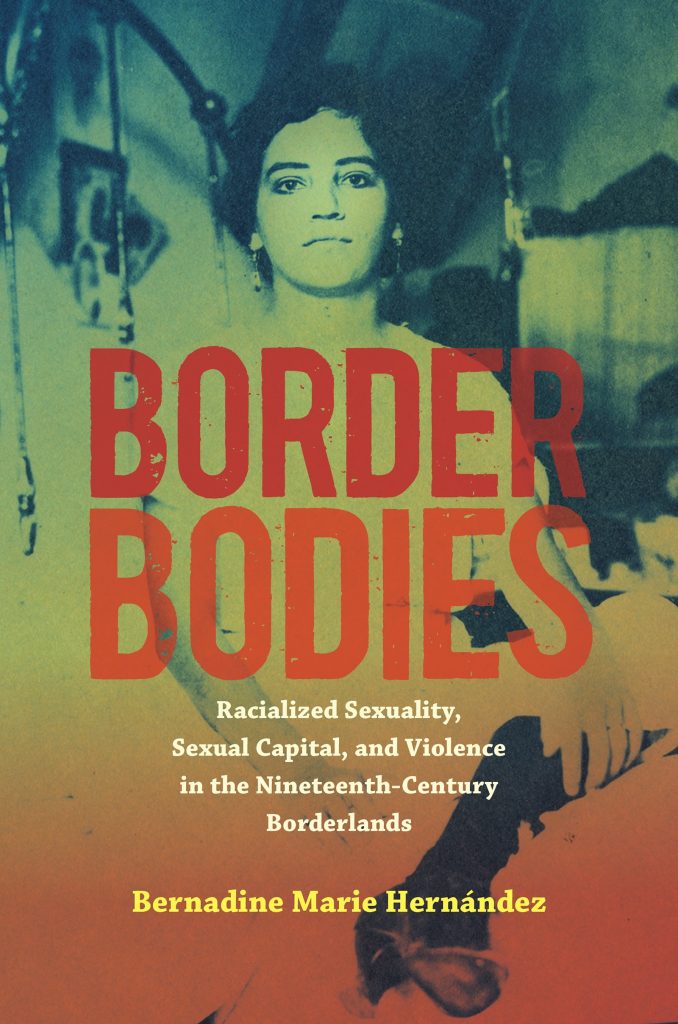
In this study of sex, gender, sexual violence, and power along the border, Bernadine Marie Hernández brings to light under-heard stories of women who lived in a critical era of American history. Elaborating on the concept of sexual capital, she uses little-known newspapers and periodicals, letters, testimonios, court cases, short stories, and photographs to reveal how sex, violence, and capital conspired to govern not only women’s bodies but their role in the changing American Southwest. Hernández focuses on a time when the borderlands saw a rapid influx of white settlers who encountered elite landholding Californios, Hispanos, and Tejanos. Sex was inseparable from power in the borderlands, and women were integral to the stabilization of that power.
In drawing these stories from the archive, Hernández illuminates contemporary ideas of sexuality through the lens of the borderland’s history of expansionist, violent, and gendered conquest. By extension, Hernández argues that Mexicana, Nuevomexicana, Californiana, and Tejana women were key actors in the formation of the western United States, even as they are too often erased from the region’s story.
Bio
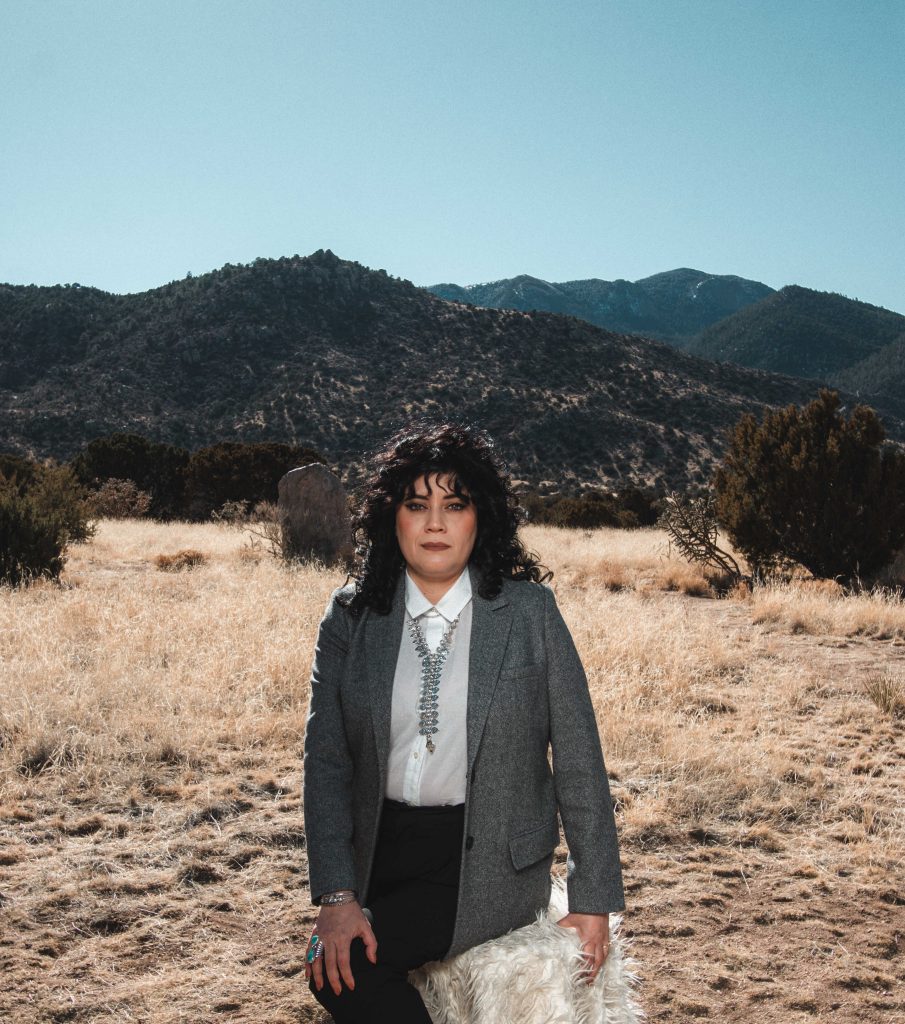
Dr. Bernadine Hernández is an associate professor in the Department of English at the University of New Mexico. She specializes in transnational feminism and sexual economies of the US-Mexico borderlands, along with American Literary Studies and Empire, border and migration history, and Chicana/Latina Literature and Sexualities. Her book with UNC press is titled Border Bodies: Racialized Sexuality, Sexual Capital, and Violence in the Nineteenth Century Borderlands and is the first book length study that focuses on sexual capital and gender and sexual violence in the borderlands in the nineteenth and early twentieth-centuries through recovered archival work. She is also the co-editor of the first edited collection on Ana Castillo titled New Transnational Chicanx Perspectives on Ana Castillo, published with University of Pittsburg Press in Spring 2021. Her other publications appear in Comparative Literature and Culture, Transgender Studies Quarterly, Women’s Studies Quarterly, among others.
She is also a public facing scholar and works with the artist and writer collective fronteristxs, a collective of artists and writers in New Mexico working to end migrant detention and abolish the prison industrial complex through creative activism. Fronteristxs provides free political education for community and youth throughout New Mexico on transformative justice and abolition. She sits on the City of Albuquerque Public Arts Board and the Working Classroom Board.
Glory Box
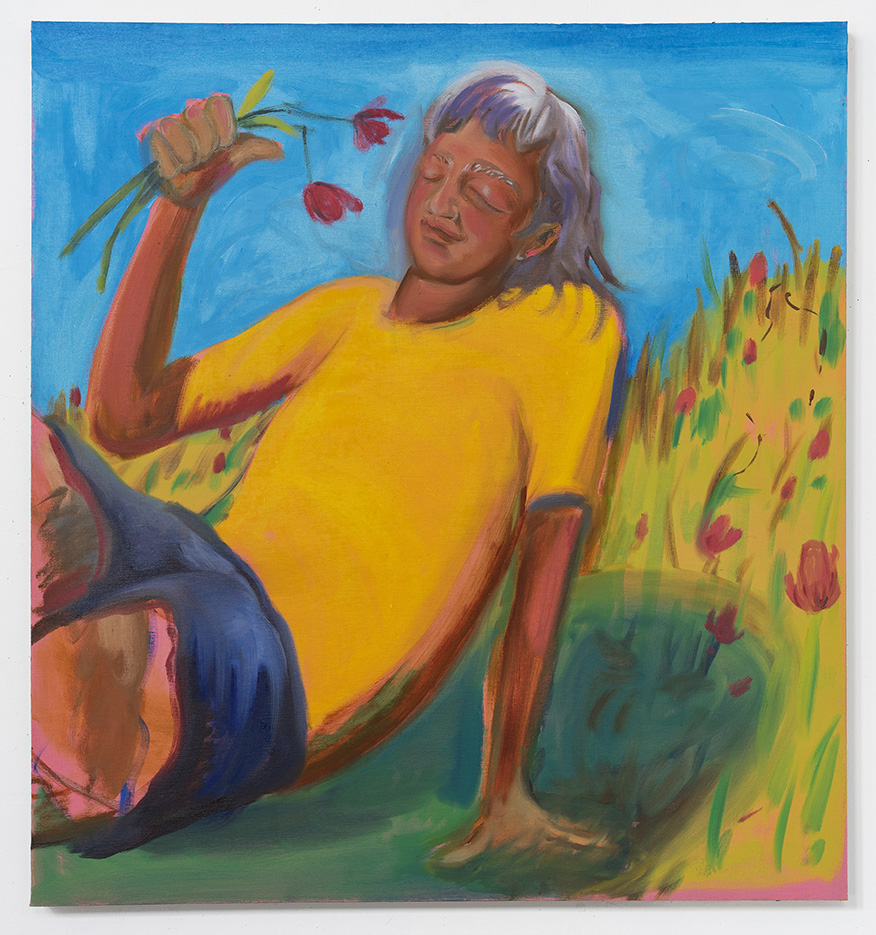
Glory Box
Alyssa Eble
April 7 – 21, 2023
Reception: Friday, April 7 from 5-8 pm
Sanitary Tortilla Factory is pleased to present Glory Box by UNM College of Fine Art’s MFA Candidate and Exceptional Visual Art Scholar (EVAS) Awardee Alyssa Eble. EVAS is a series that offers professional space for Master of Fine Art graduate students as their final thesis show. The culminating exhibition launches them into their profession as an artist. With the series, we underscore exceptional artists attending regional institutions while highlighting Albuquerque’s innovative contemporary art scene. A glory box is like a hope chest. It is a box filled with heirlooms – both practical and nostalgic – which are handed down with the intention of preparing for and enhancing a future domestic union. It contains, in part, the wisdom of previous generations, but more specifically it is an amalgamation of genealogical expectations placed upon a woman regarding her future.
Borrowing the title and air of frustration from the song “Glory Box” by Portishead, Alyssa Eble’s MFA thesis exhibition confronts this notion of glory box with tongue firmly planted in cheek. Traditionally, paintings and drawings utilize the rectangular form as a kind of box within which concept, narrative and materiality are contained. Alyssa makes use of this tradition in her work, where contemporary anxieties, deliberations, joyful and awkward episodes, accumulate and remain haunted with a sense of inheritance. Her images portray composite memories and experiences that form lineal threads between past, present, and future.
Simply being present feels tenuous in this current era of distraction, and the need for conscious attempts towards happiness is real. The works in Glory Box contain Alyssa’s personal and symbolic narratives, illustrating figures acting out routine in hopes to thwart despair while still balancing a myriad of emotions. The tactility expressed through Alyssa’s materials and practice emphasize her interest in both rendering, experiencing, and underlining the gratification of being present in each moment.
Artist Bio:
Alyssa Eble (b. Oaklawn, IL) is a painter, drawer, and printmaker hailing from New York City by way of the Midwest. Her work articulates nods to gesture, identity, figuration, art history, and narrative through each medium she chooses for investigation. Alyssa received a BFA in Painting and a BA in Art History from Indiana University. She is completing her Painting & Drawing MFA in spring 2023 from the University of New Mexico. Her work has been shown in solo and group exhibitions across the United States.
Exuviae by Corn Wagon Thunder
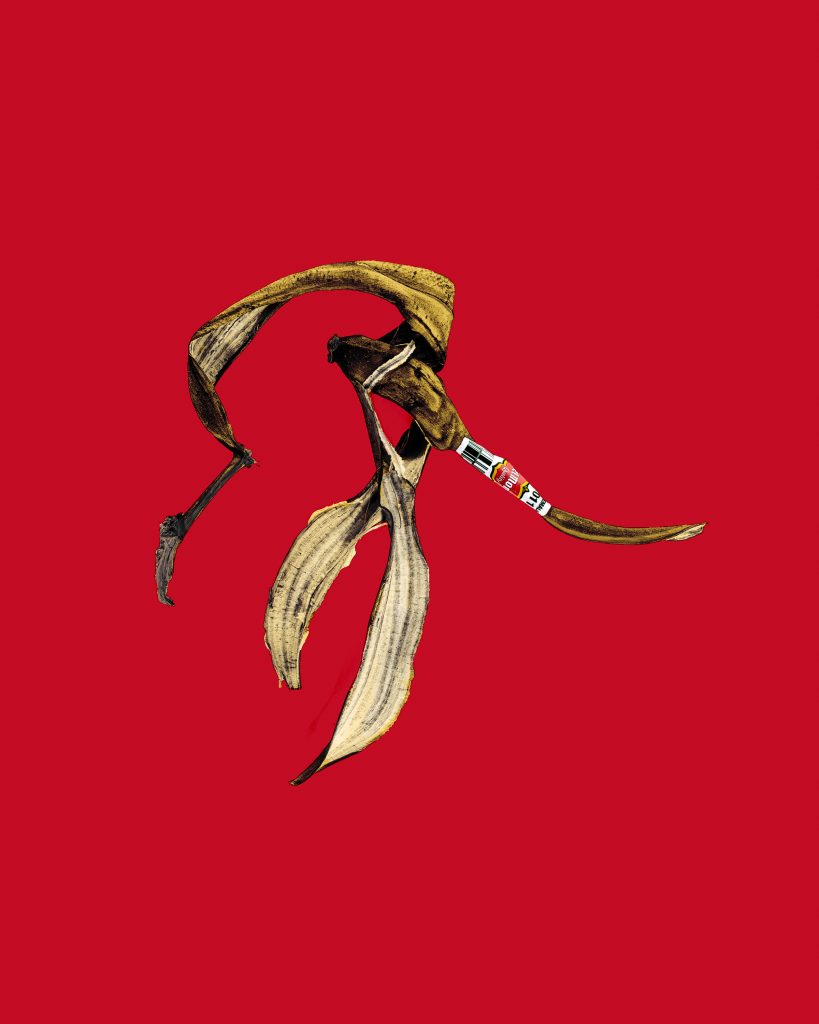
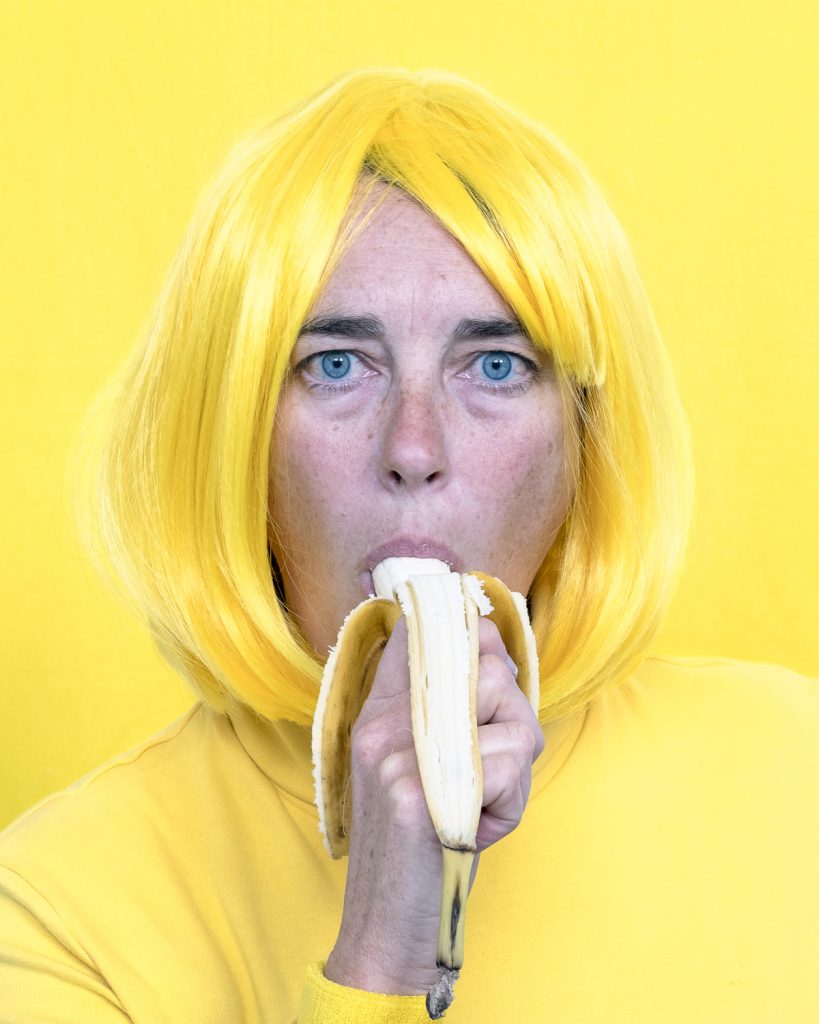
Exuviae
Corn Wagon Thunder
March 3-24, 2023
Opening Reception: March 3, 2023 from 5-8 pm
Sanitary Tortilla Factory is pleased to present Exuviae by UNM College of Fine Art’s MFA Candidate and Exceptional Visual Art Scholar (EVAS) Awardee Corn Wagon Thunder. EVAS is a series that offers professional space for Master of Fine Art graduate students as their final thesis show. The culminating exhibition launches them into their profession as an artist. With the series, we underscore exceptional artists attending regional institutions while highlighting Albuquerque’s innovative contemporary art scene. Our connective tissue gives our bodies form and cohesion. This project found me looking for the connective tissue that binds my work together, supports it, and gives it recognizable form. As I contemplated my work, I wrote down words that came to mind: kin, shed, molt, fell, identity, mask, growth, change, loss, abandonment, mortality, memorialization, memory, time, nostalgia, absurdity, humor. That brought me to the title of this exhibition: Exuviae.
Exuviae are cast skins, shells, or other coverings of animals. The connections in my work are found in that which is shed and consequently remembered or memorialized. The foundation of growth and change is that which is lost or abandoned. The ensuing nostalgia provides room for the humor and absurdity of identity to transform over time and finally to die.
Artist Bio:
Corn Wagon Thunder is a photographer residing in the Southwestern United States, where she is currently pursuing a Master of Fine Arts degree at the University of New Mexico. Originally hailing from North Carolina, at age eighteen Corn high-tailed it to Boston, Massachusetts. Here she picked up a little bit of Yankee sass and received her Bachelor of Fine Arts from the School of the Museum of Fine Arts, Boston, in conjunction with Tufts University. Corn has also studied at Penland School of Craft in North Carolina—also known as Shangri-la. Now that she has migrated to the Southwest, Corn is happily ensconced in off-grid life high on a mesa top with her partner.
Diasporic Deities
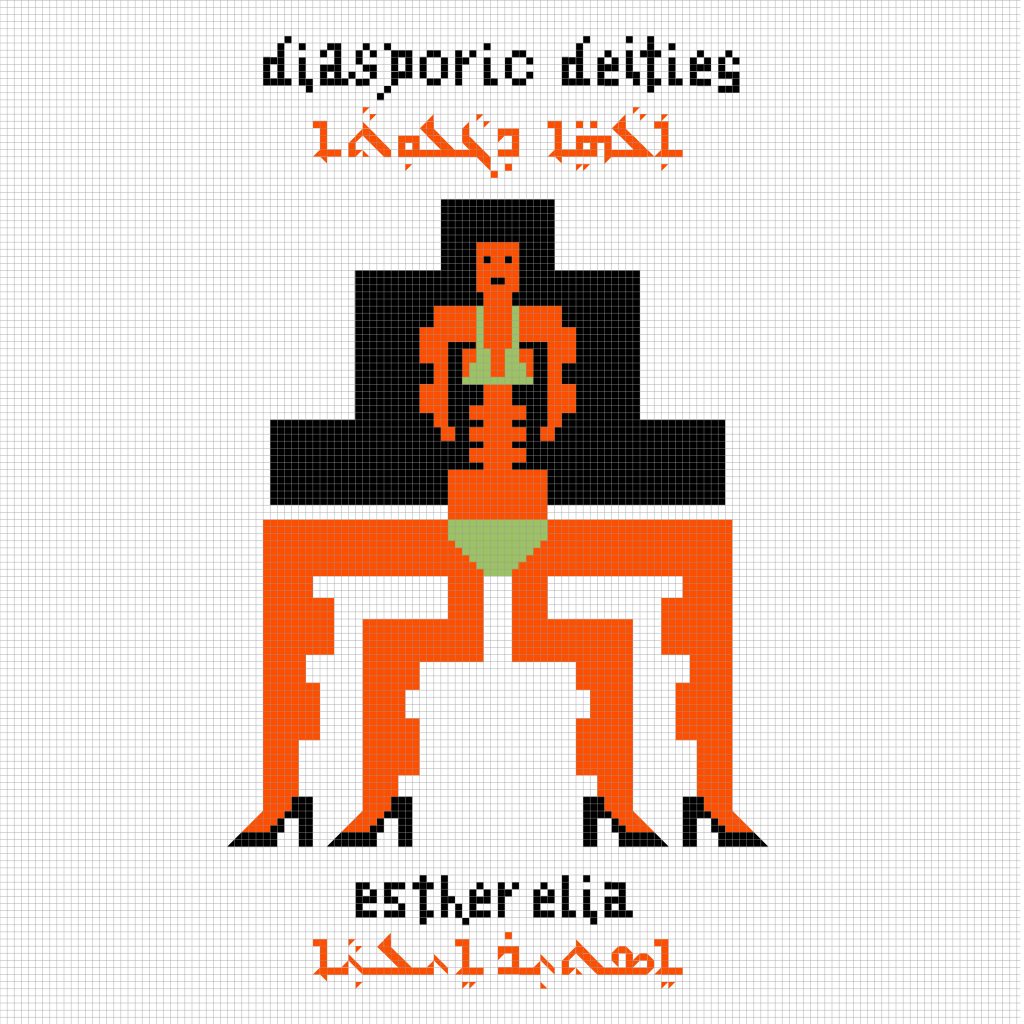
Diasporic Deities
Esther Elia
February 3-24, 2023
Opening: February 3, 5-8 pm
Zuyakha/Celebration:
Saturday, February 4, 5:30
*Performance starts at 6:00 pm with traditional Assyrian food and dancing.
Sanitary Tortilla Factory is pleased to present Diasporic Deities by UNM College of Fine Art’s MFA Candidate and Exceptional Visual Art Scholar (EVAS) Awardee Esther Elia. EVAS is a series that offers professional space for Master of Fine Art graduate students as their final thesis show. The culminating exhibition launches them into their profession as an artist. With the series, we underscore exceptional artists attending regional institutions while highlighting Albuquerque’s innovative contemporary art scene.
If one were looking for an Assyrian, they are most easily found in the Met, the British Museum, and the Louvre, most likely correcting unwitting docents who casually referred to Assyrians in the past tense. The Assyrian Indigenous homeland is the intersection of modern-day Turkey, Syria, Iran, and Iraq. Many years ago, museums were built to house the fantastic treasures of our monumental carved lamassu that were originally stationed outside of Assyrian cities like Nineveh. Unearthed bas reliefs that lined palace walls and portrayed the victories of the Assyrian kings Sargon, Sannacherib, and Ashurbanipal were taken from the land of their conception and transplanted, a sort of prophecy of what was to come for the Assyrian people themselves. These sculptures spoke to the Western imagination, a tale of the great kingdoms of the past, and created a folklore of a time and people they decided must be long gone.
So what of the living, breathing Assyrians? Today they are a religious and ethnic minority, survivors of multiple genocides throughout the 19th and 20th centuries, scattered across the world in tight-knit communities within their Indigenous homelands and diaspora.
This is the basis of the monumental sculptures and large-scale paintings shown in Esther Elia’s MFA Thesis Exhibition, Diasporic Deities. Through the use of material and the visual impacts of diaspora, Elia documents the next phase of the Assyrian identity. While ancient Assyrian art documented the deities that were born out of the Mesopotamian landscape, Elia imagines how these deities have shifted in diaspora. They take on new faces, new occupations – rooted in homeland, and yet evolving to reflect the needs of a generation exiled from their Indigenous home. These “new deities” also echo the fertility goddesses that we carried around with us in the past, their exaggerated features showing up in new ways with multiple limbs, muscles, and bodybuilder competition bikinis. In essence, our strength becomes exaggerated, for we are in less need of fertility and in more need of muscle. These grandchildren of our pantheon are portraits of our women stolen, and our nation’s fertility co-opted most recently by the ISIS invasions. These tiled structures stand strong, winged, multi-limbed, and muscular – the new protective deities for the contemporary Assyrian.
Artist Bio:
Esther Elia was born and raised in Turlock, California. She received a BFA in Illustration from California College of the Arts in 2019, and is currently finishing a Masters of Fine Arts in Painting/Drawing from the University of New Mexico. Her work focuses on the Assyrian experience, the maintaining and creation of culture in diaspora, and revitalizing Assyrian ritual practices through sculpture and large-scale paintings. She, along with other Assyrian visual artists, are working to combat the notion that Assyrian Art can and does only exist within the ancient past by collecting and displaying contemporary oral histories, painting living Assyrian faces, speaking and examining the Assyrian language, and documenting Assyrian culture as it continues to grow and shift both in our indigenous homeland and diaspora.
Her work has focused in the past on the refugee experience, and addresses more broadly the mindset that is obsessed with the pursuit of safety. In her new series of diasporic deities, she draws from the grid of the rug and cultural practices of tiling to create blocky sculptures that reference Afghan war rugs. Just as villages documented unfamiliar Soviet weapons of war in their kilims, so I too am combining the new with the old, my diasporic environment showing up and taking shape within ancient references. Esther’s work has been shown in the deYoung museum, she has done murals in Iraq and California Facebook offices, was accepted to participate in the 2022 Guggenheim Summer College Workshop, and has most recently won the 2022 Assyrian Academic Research Grant for her project The Assyrian Prayer Bowl Archive.
La Eterna Injusticia
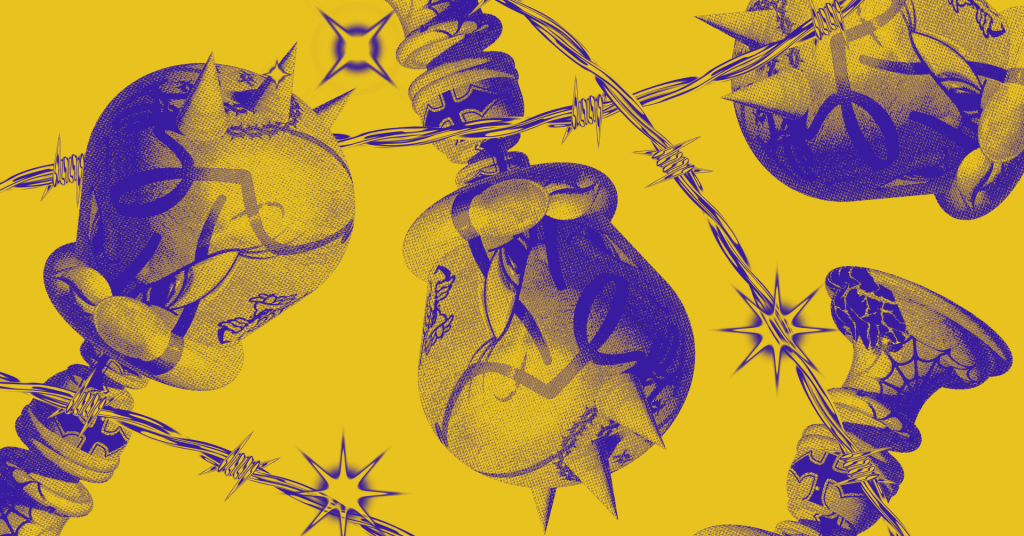
La Eterna Injusticia
Martín Wannam
January 6 – January 27, 2023
Reception: Friday, January 6, 5-8:30 pm
Sanitary Tortilla Factory proudly presents La Eterna Injusticia by Martín Wannam. This exhibition reflects on the power of monuments by questioning the ideologies they can reinforce. The brown silhouettes in each portrait takes the place of the monuments in Guatemala City with violent, oppressive histories, especially in relation to the LGBTQ+ community. Removing the iconography and placing the brown silhouette in its place creates an intervention that asks the viewer to reimagine each monument’s power through a queer lens. By combining a variety of popular culture references and textures in each artwork, a maximalist anti-aesthetic is created. The concept of monumentality is also present in the video installation. Each performer becomes a moving monument and the audience becomes a participant in the work as they partake in the spectacle. The exhibition asks, what would a queer utopia look like? What, or who would be idolized through a monument?
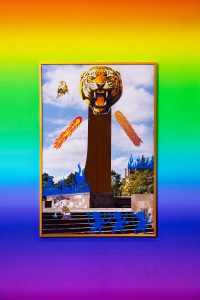
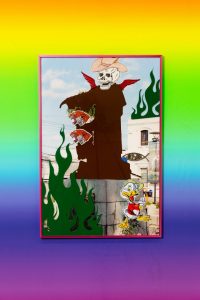
Artist Bio
Martín Wannam (b. 1992, Guatemala) is a visual artist and educator whose work looks critically at the historical, social, and political climate of Central America, specifically examining its impact on the queer individual. He focuses on the intersection of brownness and queer utopia,using the tools of photography, sculpture, and performance. Working from the premise of iconoclasm, he enacts a constant evaluation of systematic structures such as religion, coloniality, folklore, and white supremacy.
He received his MFA in Photography from the University of New Mexico in the Spring 2020, a Diploma in Contemporary photography from La Fototeca (GT) in 2016, and a BA in Graphic Design from the Universidad Rafael Landivar (GT) in 2015. Wannam has exhibited nationally and internationally, including various group and solo shows in Guatemala, The United States, Rotterdam, Netherlands, and Korea. Wannam is the recipient of a Special Mention in the category Series in PHOTO PRIDE 2020, Fulcrum Fund 516 (2020), Coke Newhall Photo Fellowship (2020), MaryAnn Evans Grant (2019), SPE Student Award for Innovations in Imaging (2018), and Site Scholar (2018-2019). Currently, he is an Assistant Professor in Studio Art at UNC Chapel Hill and part of the Fronteristxs Collective.
